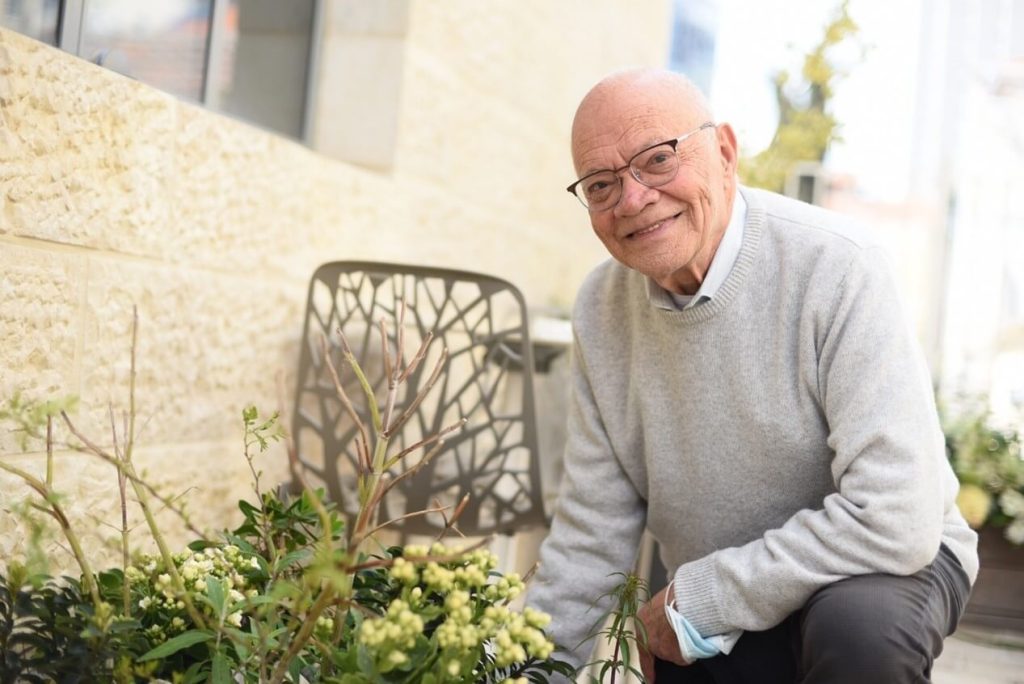
"התבוננו על החיים כעל ורד, תהנו מהריח והיופי ואל תתייחסו רק לקוצים".
"בשנת 1940 נכבשה צרפת, ששיתפה פעולה עם שלטון וישי, על ידי הגרמנים, ובאוקטובר של אותה שנה חוקק בתוניסיה החוק האנטי-יהודי הראשון. בשנת 1942 נכנסו כוחות גרמניים לתוניסיה, והיהודים שבספאקס וחלק מיהודי העיר תוניס נאלצו לענוד טלאי צהוב.
האלימות הייתה בשיאה. הגרמנים איימו ופגעו, גבו כספים מיהודים בשלל תירוצים אנטישמיים, ולכן עזרנו, אחיי ואני, לנהל את חנות הטקסטיל של אבא, שהייתה מקור הפרנסה של המשפחה. הגרמנים גם הפציצו חנויות ואף התפרצו לבתי כנסת ובזזו אותם. בספאקס ובערים נוספות הוקמו מחנות עבודה בכפייה. הגזזת התפשטה בהן, ואני זוכר שגילחו אותנו כדי לעצור את המגפה. המצב הקשה נמשך עד למאי 1943, ולאחר מכן שחררו בעלות הברית את תוניסיה, והפעילות הכלכלית והקהילתית של היהודים חודשה.
בשנת 1945 התחילה עליית יהודי תוניסיה לארץ. עליתי עם הוריי בשנת 1955, כשמלאו לי תשע־עשרה, ונשלחנו למעברת גבים-דורות. הבאנו איתנו ארצה את כלי הנגינה הראשון שלי, האקורדיון, שניגנתי בו מגיל שתיים־עשרה. עבדתי אז בחקלאות והעברתי קווי מים, עד שיום אחד חליתי והוריי ביקשו שאפסיק לעבוד בעבודה הזו. במלחמת סיני גויסו רוב הגברים, ולכן התקבלתי לעבודה, שבה התבקשתי לנגן לתלמידים בבתי הספר ולחיילים במלחמה, כך צורפתי בצבא לתזמורת חיל האוויר. לאחר השחרור התקבלתי ללמד מוזיקה בבתי ספר יסודיים.
כשלמדתי הוראה הכרתי את יהודית, התאהבנו, התחתנו, ונולדו לנו שישה ילדים. יהודית נפטרה בשנת 2010, ולפני כמה שנים הכרתי את חדוה, ומאז אנחנו מטיילים, נפגשים ונהנים ביחד, ובעיקר חברים לחיים."
Shlomo Buchenik – born 1936 in Sfax in Tunisia
“Think of life as a rose: enjoy the scent and the beauty and don’t just focus on the thorns.”
“In 1940 France under the collaborative Vichy Government, was conquered by the Germans, and in October that year the first anti-Jewish law was passed in Turnisia. In 1942 the German forces entered Tunisia, and the Jews in Sfax and some of the Jews in the city of Tunis were forced to wear the yellow patch.
Violence was at record heights. The Germans threatened and struck, collected payments from Jews with all sorts of antisemitic excuses, and so my brother and I helped to managed our father’s textile store, which was the source of the family’s income. The Germans blew up stores and even broke into synagogues and looted them. In Sfax and in other towns forced labor camps were set up. Scalp ringworm spread quickly and I remember they shaved our heads to stop the epidemic. The difficult situation continued until May 1943, and then the Allies liberated Tunisia and the Jews renewed their economic activity.
In 1945 the Jews of Tunisia began to immigrate to Israel. I immigrated with my parents in 1955, when I was nineteen, and we were sent to Gevim-Dorot transit camp. We brought with us my first musical instrument, the accordion that I played since I was twelve. I worked in agriculture, laying water pipes, until one day I fell ill and my parents wanted me to stop doing that work. In the Sinai Campaign most of the men were recruited, so I was accepted for a job where I was asked to play for schoolchildren and soldiers fighting in the war. In that way I joined the Air Force Orchestra. After leaving the Air Force I was accepted to teach music in elementary schools.
While I was studying teaching I met Yehudit, we fell in love, we got married and we had six children. Yehudit died in 2010, and a few years ago I met Hedva, and this then we go on trips, meet and enjoy ourselves together. We are friends for life.